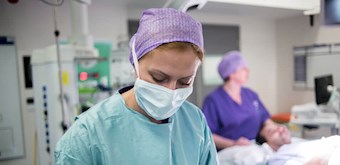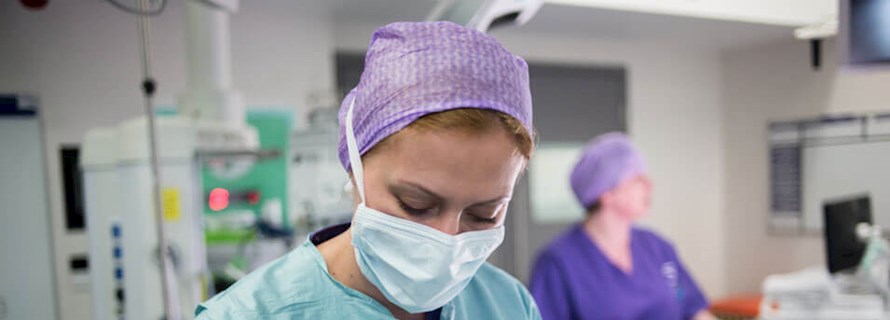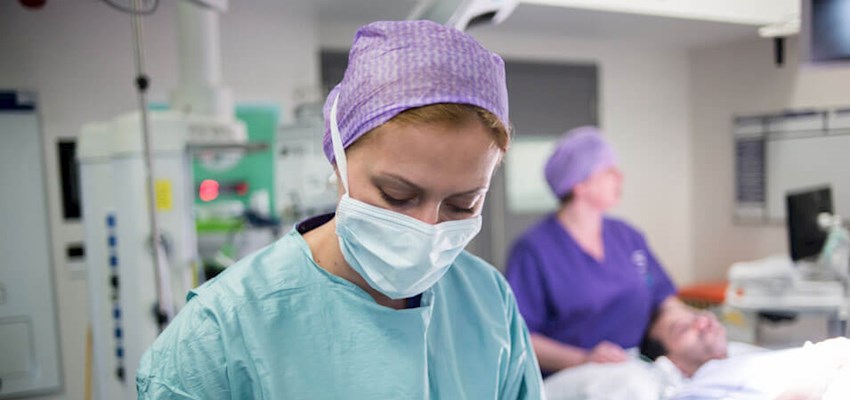Benign anorectal disease
Anal conditions
There are a range of benign (non-cancerous) anal conditions you may experience. Our colorectal experts can treat you
What is benign anorectal disease?
Benign anorectal disease encompasses a number of conditions around the anus/rectal area. These can be very common with different levels of severity. You may experience problems such as ongoing pain, bleeding, or returning ulcers and or/abscesses. Our colorectal experts can discuss your symptoms with you. This will help them diagnose and treat you.
Types of benign anorectal disease
Haemorrhoids
Also known as piles. These are swellings of large blood vessels around the anus and rectum.
Anal fissure
A tear or ulcer that appears on the inside of the anus. They can cause anal bleeding when passing stools.
Anal fistula
A fistula is a small tunnel that develops between the end of the bowel and anus. They're usually the result of an infection in this area.
Anal abscess
A painful collection of pus inside the anus, also usually caused by an infection in and around this area.
Pilonidal sinus
A small hole appears at the top of the buttocks, where they divide. Symptoms are not always obvious, and may be diagnosed as a result of infection.
Need to know
-
What are the symptoms of benign anorectal disease? icon plus
Benign anal disorders and symptoms might include:
- Haemorrhoids: anal bleeding after passing stools, lumps around the anus, anal swelling, redness or soreness
- Anal fissure (tear/ulcer): bleeding or pain when passing stools
- Anal fistula: skin irritation/swelling around the anus, pain when you sit down, anal bleeding or pus when passing stools
- Anal abscess: pain when you sit down, anal bleeding or pus when passing stools
- Pilonidal sinus: this is a rare condition. A small hole appears at the top of the buttocks, where they divide. Symptoms are not obvious, and it may be diagnosed as a result of infection
-
How is benign anorectal disease diagnosed? icon plus
Your consultant will discuss your symptoms with you and help to make a diagnosis. They will likely ask about your toilet habits. Tests we offer to diagnose different anorectal diseases include:
- A thorough examination of your buttocks and anus. This is to identify things such as fissures, lumps and abscesses
- Digital rectal examination (DRE). Using gloves and lubricant, your consultant will check for abnormalities on the inside of your anus with their finger
- In some cases a proctoscopy may be needed. A small, hollow tube with a light on the end (proctoscope) is inserted into your anus. This allows your consultant to assess your anal canal
-
Potential treatment options icon plus
Your consultant will discuss your treatment options and help to determine the best approach for you. Dependent on your condition, treatment options might include:
- Pain relief medication, laxatives and creams
- For conditions such as haemorrhoids, a treatment called banding may be required. A very tight band is tied around the haemorrhoid or lump to cut off its blood supply. It should fall off naturally
- Muscle relaxant injections. A very strong poison that treats infections and fissures
- In some severe cases there are a range of surgical procedures available to you. Your consultant will of course discuss these options in detail with you
Our colorectal consultants
We're proud to work with leading gastroenterologists and colorectal surgeons who specialise in problems of the lower bowel and anal/rectal regions. Our consultants can investigate any problems quickly speeding up the time to diagnosis. Medical and surgical treatments are available dependent on your diagnosis.




Our locations
From complex colorectal surgery to diagnostic tests and procedures, we provide exceptional colorectal care across our network of hospitals, outpatient centres and specialist clinics.
Book an appointment
Our team can help with any enquiries or you can make an appointment with one of our experienced consultants.
Call us today
020 7079 4344
This content is intended for general information only and does not replace the need for personal advice from a qualified health professional.